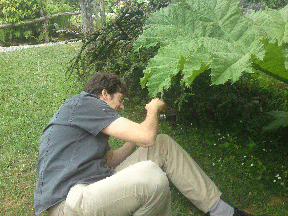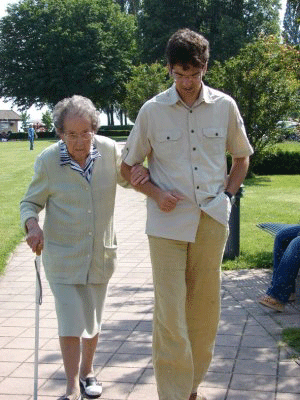Interview with Gianluca Antonio Rizzo. Staff Researcher, Institute IMDEA Networks
 1. To begin this interview, we are curious about how you were called to the life of science. When and why did you decide to become a scientist?
1. To begin this interview, we are curious about how you were called to the life of science. When and why did you decide to become a scientist?
I see myself as someone full of curiosity, and I always had a passion for challenges. Probably, the origins of my vocation for research are to be found in these aspects of my personality.
2. What training and background do you have as a researcher?
My trajectory has not been a straight one. I studied Electronic Engineering at Politecnico di Torino in Italy, and my first passion has been optical communication systems. Lasers, optical fiber communications, and optoelectronics fascinated me. I built a strong background on these subjects during my Masters, and obtained my Masters Thesis on a particular nonlinear effect in optical fibers, that is currently used to amplify the optical signal on fibers in a distributed way.
When I finished my Masters, I decided to widen my background, and I worked for three years at Telecom Italia Labs, also in Torino, as a researcher. There, I focused not only on optical networks architectures, but also on storage area networks. I had a lot of fun, but I soon felt that, in order to do some “serious” research, it was necessary for me to step again into the academic world. Thus I joined the Ph.D. program at EPFL (École Polytechnique Fédérale de Lausanne) in Switzerland, where I had the luck of having as advisor an extremely smart researcher and a wise person, Prof. Dr. Jean-Yves Le Boudec, who helped to shape my way of thinking and working. He gave me a lot, and trying to apply some of the things I learnt from this experience is my daily effort here at IMDEA Networks.
3. How did you get the opportunity to come and work in Madrid? What institutions have you been connected to so far?
After my Ph.D., I was considering several options for my next step. I had several ideas on what I would have liked to do. I wanted to continue into research, but changing a bit with respect to what I had been doing in the last five years. I was looking for a place that really aims at high quality research.
4. What interested you most about the IMDEA project? What made you want to become involved?
I immediately found the opportunity offered by IMDEA Networks very attractive, as it fitted all the characteristics I was interested in. I particularly appreciate the freedom of choosing your own research direction, and the possibility that it is given to us to shape the present and the future of the institute. I felt at IMDEA Networks I could do exactly what I wanted to, and this persuaded me to join the institute.
5. In what research lines will you be working? What specific results do you expect to see?
In the near future, I’ll be working on green networking. To me it is an interesting domain, encompassing several aspects of networking and computer science, and it presents a set of problems still waiting for a good solution. I think that in this domain a fundamental challenge is making an efficient use of the energy without compromising the reliability and the quality of the services offered. Our objective here is to pick at least the “low hanging fruits”, that is, those solutions that make the network more energy efficient without a significant decrease in QoS and with the smallest increase of the complexity of the system. Otherwise, the risk is of introducing solutions whose cost ultimately outweighs the benefits.
6. Did you know Spain before joining IMDEA? What do you like best about Madrid?
Before joining IMDEA Networks, I had only been to Barcelona, and I liked that city a lot. I somehow feel at home in Madrid, because Spanish people have a similar character to the Italians of the south, and probably also because my family has (remote) Spanish origins. What I like most about Madrid (and about Spain in general) is the friendliness and sociability of its people, which make it very easy for a foreigner to adapt to life here.


Some of Gianluca’s hobbies: photography and social service (he was a volunteer for the Red Cross during his time in Switzerland).
Read more:
 Download press release (269 KB)
Download press release (269 KB)
Madrimasd - Entrevistas (in Spanish only)

